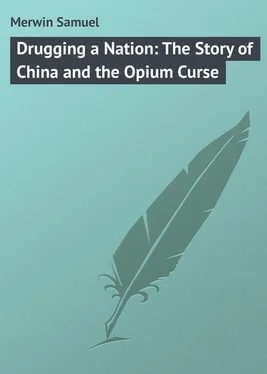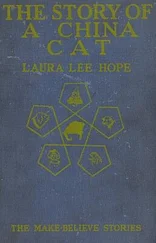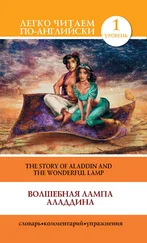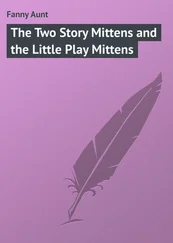Samuel Merwin - Drugging a Nation - The Story of China and the Opium Curse
Здесь есть возможность читать онлайн «Samuel Merwin - Drugging a Nation - The Story of China and the Opium Curse» — ознакомительный отрывок электронной книги совершенно бесплатно, а после прочтения отрывка купить полную версию. В некоторых случаях можно слушать аудио, скачать через торрент в формате fb2 и присутствует краткое содержание. Жанр: foreign_prose, на английском языке. Описание произведения, (предисловие) а так же отзывы посетителей доступны на портале библиотеки ЛибКат.
- Название:Drugging a Nation: The Story of China and the Opium Curse
- Автор:
- Жанр:
- Год:неизвестен
- ISBN:нет данных
- Рейтинг книги:5 / 5. Голосов: 1
-
Избранное:Добавить в избранное
- Отзывы:
-
Ваша оценка:
- 100
- 1
- 2
- 3
- 4
- 5
Drugging a Nation: The Story of China and the Opium Curse: краткое содержание, описание и аннотация
Предлагаем к чтению аннотацию, описание, краткое содержание или предисловие (зависит от того, что написал сам автор книги «Drugging a Nation: The Story of China and the Opium Curse»). Если вы не нашли необходимую информацию о книге — напишите в комментариях, мы постараемся отыскать её.
Drugging a Nation: The Story of China and the Opium Curse — читать онлайн ознакомительный отрывок
Ниже представлен текст книги, разбитый по страницам. Система сохранения места последней прочитанной страницы, позволяет с удобством читать онлайн бесплатно книгу «Drugging a Nation: The Story of China and the Opium Curse», без необходимости каждый раз заново искать на чём Вы остановились. Поставьте закладку, и сможете в любой момент перейти на страницу, на которой закончили чтение.
Интервал:
Закладка:
Perhaps the most striking testimony bearing against the policy of the company was that given by Robert Inglis, of Canton, a partner in the large opium-trading firm of Dent & Co., to the Select Committee on China Trade (House of Commons, 1840). Here it is:
Mr. Inglis. – “I told him (Captain Elliot) that I was sure the thing could not go on.”
Mr. Gladstone. – “How long ago have you told him that you were sure the thing could not go on?”
Mr. Inglis. – “For four or five years past.”
Chairman. – “What gave you that impression?”
Mr. Inglis. – “An immense quantity of opium being forced upon the Chinese every year, and that in its turn forcing it up the coast in our vessels.”
Chairman. – “When you use the words ‘forcing it upon them,’ do you mean that they were not voluntary purchasers?”
Mr. Inglis. – “No, but the East India Company were increasing the quantity of opium almost every year, without reference to the demand in China; that is to say, there was always an immense supply of opium in China, and the company still kept increasing the quantity at lower prices.”
Three years later, just after the war, Sir George Staunton, speaking from experience as a British official in the East, said in the House of Commons, “I never denied the fact that if there had been no opium smuggling there would have been no war.
“Even if the opium habit had been permitted to run its natural course, if it had not received an extraordinary impulse from the measures taken by the East India Company to promote its growth, which almost quadrupled the supply, I believe it would never have created that extraordinary alarm in the Chinese authorities which betrayed them into the adoption of a sort of coup d’ etât for its suppression.”
Sir William Muir, some time lieutenant-governor of the Northwest Provinces of India, is on record thus: “By increasing its supply of ‘provision’ opium, it (the Bengal government) has repeatedly caused a glut in the Chinese market, a collapse of prices in India, an extensive bankruptcy and misery in Malwa.”
The most interesting summing-up of the whole question I have seen is from the pen of Sir Arthur Cotton, who wrote after sixty years’ experience in Indian affairs, protesting against “continuing this trading upon the sins and miseries of the greatest nation in the world in respect of population, on the ground of our needing the money.”
What was China doing to protect herself from these aggressions? The British merchants and the British trade agent had by this time worked into the good-will of the Chinese merchants and the corrupt mandarins, and had finally established their residence at Canton and their depot of store-ships at Whampoa, a short journey down the river. In 1839 there were about 20,000 chests of opium stored in these hulks. In that same year the Chinese emperor sent a powerful and able official named Lin Tse-hsu from Peking to Canton with orders to put down the traffic at any cost. Commissioner Lin was a man of unusual force. He perfectly understood the situation in so far as it concerned China. He had his orders. He knew what they meant. He proposed to put them into effect. There was only one important consideration which he seems to have overlooked – it was that India “needed the money.” His proposal that the foreign agents deliver up their stores of “the prohibited article” did not meet with an immediate response. The traders had not the slightest notion of yielding up 20,000 chests of opium, worth, at that time, $300 a chest. Lin’s appeals to the most nearly Christian of queens, were no more successful. He did not seem to understand that China was a long way off; it was very close to him. Here is a translation of what he had to say. To our eyes to-day, it seems fairly intelligent, even reasonable:
“Though not making use of it one’s self, to venture on the manufacture and sale of it (opium) and with it to seduce the simple folk of this land is to seek one’s own livelihood by the exposure of others to death. Such acts are bitterly abhorrent to the nature of man and are utterly opposed to the ways of heaven. We would now then concert with your ‘Hon. Sovereignty’ means to bring a perpetual end to this opium traffic so hurtful to mankind, we in this land forbidding the use of it and you in the nations under your dominion forbidding its manufacture.”
Her “Hon. Sovereignty,” if she ever saw this appeal (which may be doubted), neglected to reply. Meeting with small consideration from the traders, as from their sovereign, Commissioner Lin set about carrying out his orders. There was an admirable thoroughness in his methods. He surrounded the residence of the traders, Captain Elliot’s among them, with an army of howling, drum-beating Chinese soldiers, and again proposed that they deliver up those 20,000 chests. Now, the avenues of trade do not lead to martyrdom. Traders rarely die for their principles – they prefer living for them. The 20,000 chests were delivered up, with a rapidity that was almost haste; and the merchants, under the leadership of the agent, withdrew to the doubtful shelter of their own guns, down the river. Commissioner Lin, still with that exasperatingly thorough air, mixed the masses of opium with lime and emptied it into the sea. England, her dignity outraged, hurt at her tenderest point, sent out ships, men and money. She seized port after port; bombarded and took Canton; swept victoriously up the Yangtse, and by blocking the Grand Canal at Chinkiang interrupted the procession of tribute junks sailing up the Peking and thus cut off an important source of the Chinese imperial revenue. This resulted in the treaty of Nanking, in 1843, which was negotiated by the British government by Sir Henry Pottinger.
Sir Henry, like Commissioner Lin, had his orders. His methods, like Lin’s, were admirable in their thoroughness. He secured the following terms from the crestfallen Chinese government: 1. There was to be a “lasting peace” between the two nations. 2. Canton, Amoy, Foochou, Ningpo, and Shanghai were to be open as “treaty ports.” 3. The Island of Hongkong was to be ceded to Great Britain. 4. An indemnity of $21,000,000 was to be paid, $6,000,000 as the value of the opium destroyed, $3,000,000 for the destruction of the property of British subjects, and $12,000,000 for the expenses of the war. It was further understood that the British were to hold the places they had seized until these and a number of other humiliating conditions were to be fulfilled. Thus was the energy and persistence of the opium smugglers rewarded. Thus began that partition of China which has been going on ever since. It is difficult to be a Christian when far from home.
It is difficult to get an admission even to-day, from a thorough-going British trader, that opium had anything to do with the war of 1840-43. He is likely to insist either that the war was caused by the refusal of Chinese officials to admit English representatives on terms of equality, or that it was caused by “the stopping of trade.” There was, indeed, a touch of the naively Oriental in the attitude of China. To the Chinese official mind, China was the greatest of nations, occupying something like five-sixths of the huge flat disc called the world. England, Holland, Spain, France, Portugal, and Japan were small islands crowded in between the edge of China and the rim of the disc. That these small nations should wish to trade with “the Middle Kingdom” and to bring tribute to the “Son of Heaven,” was not unnatural. But that the “Son of Heaven” must admit them whether he liked or not, and as equals, was preposterous. Stripping these notions of their quaint Orientalism, they boiled down to the simple principle that China recognized no law of earth or heaven which could force her to admit foreign traders, foreign ministers, or foreign religions if she preferred to live by herself and mind her own business. That China has minded her own business and does mind her own business is, I think, indisputable.
Читать дальшеИнтервал:
Закладка:
Похожие книги на «Drugging a Nation: The Story of China and the Opium Curse»
Представляем Вашему вниманию похожие книги на «Drugging a Nation: The Story of China and the Opium Curse» списком для выбора. Мы отобрали схожую по названию и смыслу литературу в надежде предоставить читателям больше вариантов отыскать новые, интересные, ещё непрочитанные произведения.
Обсуждение, отзывы о книге «Drugging a Nation: The Story of China and the Opium Curse» и просто собственные мнения читателей. Оставьте ваши комментарии, напишите, что Вы думаете о произведении, его смысле или главных героях. Укажите что конкретно понравилось, а что нет, и почему Вы так считаете.












